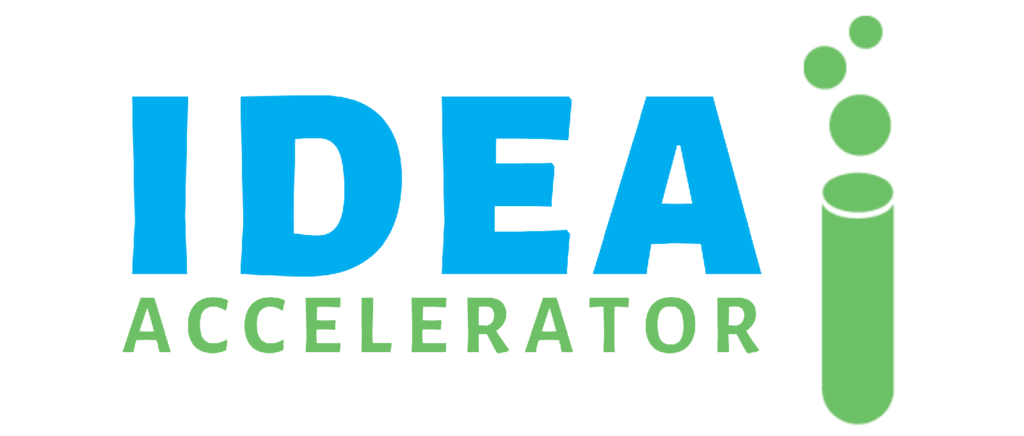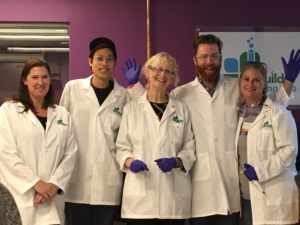BioBuilder's Idea Accelerator: Expanding Student Access to SynBio Learning
BioBuilder makes life-changing curriculum accessible for all students. When schools suspended in-person learning, a new online program, the Idea Accelerator, helped BioBuilder meet its mission.
Idea Accelerator is Born of Necessity
We’ve all “upped” our inventiveness in the past year to carry on during the pandemic. BioBuilder’s Learning Lab at LabCentral — see the sidebar — suspended in-person learning in March 2020. In response to the worldwide need for remote learning, BioBuilder developed a new program, the Idea Accelerator, to provide one-of-a-kind online instruction in synthetic biology.
BioBuilder's new online offering
BioBuilder’s Idea Accelerator is a dynamic science and engineering curriculum and experiential learning series for high school students suitable for virtual, in-person, and hybrid classroom models. Teams of students learn how to design new biotechnologies that can make the world a better place.
During the three-week online program, students can access asynchronous lectures in synthetic biology from Dr. Natalie Kuldell, MIT Senior Lecturer in Biological Engineering and BioBuilder’s Founder and Executive Director. They can also download complete chapters from BioBuilder’s textbook, and get personalized feedback on assignments, project ideas and the design process. Every week students are invited to engage in real-time career conversations with STEM professionals during live Office Hours.
The Idea Accelerator culminates in a Project Showcase, in which student teams present their biotechnology ideas through pre-recorded video or audio presentations. Want to be inspired? You can find a year’s worth of these presentations on the BioBuilder YouTube Channel.

Adaptation of the BioBuilder curriculum to online programming helped students learn synthetic biology and put it into practice with their own biodesigns.
None of the teams who participated in the Idea Accelerator shied away from the world’s toughest challenges. Students tackled a wide range of topics, developing biotechnologies to meet medical, environmental, and nutritional needs, among others. They proposed projects to solve these needs, designing novel synthetic biology technologies to do it. It wasn’t easy work but once the students learned synbio’s foundational concepts, they could rapidly apply those concepts with an engineer’s mindset to a design project of their choice.
Some of the many amazing projects were:
- A spray that makes MRSA glow to guide targeted disinfection
- Bacteria that secrete pain-reducing compounds in response to a person’s pain signals
- Microbes that can power light bulbs
- Algae that absorb microplastics and fluoresce to indicate areas where cleanup is needed
- Tattoo ink that changes color based on blood glucose levels
- Bacteria-containing implants that produce insulin in response to blood glucose levels
- Fire-retardant lichens that protect trees during wildfires
- Bacteria that convert landfill-generated methane gas to methanol
Adaptation of the BioBuilder curriculum to online programming expanded access to synbio learning

The Idea Accelerator was launched in April 2020 with more than 130 students enrolled. In the 2020/2021 academic year, seven Idea Accelerator cohorts completed BioBuilder’s three week program.
Because the program was offered online, students across the globe could participate. Since its inception, the Idea Accelerator has engaged students in four countries (Germany, Indonesia, Japan, and the U.S.) and nine U.S. states (California, Florida, Massachusetts, New Hampshire, North Carolina, Pennsylvania, Tennessee, Texas, and Virginia).
To further expand access, the Idea Accelerator was, and will continue to be, offered at no cost to schools in which 50% or more of the student population is eligible for the free or reduced lunch program. This simple strategy ensures that the curriculum is accessible to all students and teachers that are interested in synbio, regardless of their financial means.
In the 16 months since the launch of Idea Accelerator, 539 students and 32 educators have participated in the program. Eighty-two percent of the students qualified to participate at no cost.
Seventy-eight percent of the students were in the 11th or 12th grades and 58.4% were females. Students from a range of ethnicities and backgrounds are also benefitting from the Idea Accelerator program, including:
- 1% American Indian or Alaska Native
- 4% Asian (origins in the Far East, Southeast Asia, or Indian subcontinent)
- 14% Black or African American
- 30% Hispanic or Latino
- 36% White (origins in Europe, the Middle East, or North Africa)
- 15% other or did not answer
From Idea Accelerator Students to Published Authors
At the schools that participated in Idea Accelerator, 83 students comprising 10 teams continued their design projects with BioBuilder’s Project Development Studio. Now that’s momentum! More than half of those teams qualified to participate at no cost to their schools.
An example of this momentum is teacher Guadalupe Tapia’s student teams at Silva Health Magnet High School in El Paso, Texas. Three of Ms. Tapia’s classes participated in the Idea Accelerator pilot in April 2020. It was so successful that she eagerly returned in March 2021 with 30 more students. Two of those teams also participated in the Project Development Studio, and one of them submitted their work for publication in the 2021 BioTreks journal and was accepted.
Ms. Tapia, her students, and their families eagerly await the October 2021 annual BioTreks journal to celebrate their team’s success!
